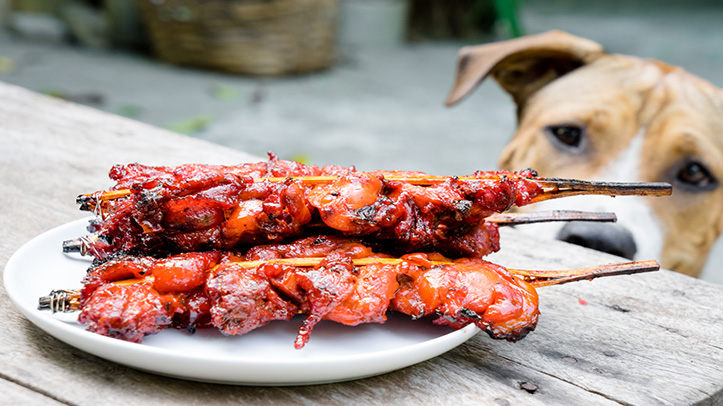With the Bank Holiday weekend rapidly approaching, pet owners are being urged to keep kebab sticks, corn on the cob and other barbecue related items away from their animals to help avoid emergency trips to the vet.
Every summer, vets see many cases of dogs with injuries caused by eating wooden and metal kebab skewers, whole corn cobs, onions and cooked bones. Although corn is not poisonous to dogs, their inability to digest the cobs can lead to obstructions, often requiring emergency surgery to prevent the risk of intestinal rupture, which can have severe consequences.
Skewers and splinters from cooked bones can also lead to serious internal injuries which often require life-saving surgery.
A new British Veterinary Association survey has revealed that last year, two-fifths (39%) of vets who had treated companion animals had seen pets with barbecue-related injuries, an increase from the 25% in 2018.
The most common issues were caused by eating inappropriate food (32%), such as corn cobs (25%) and cooked bones (18%). Injuries caused to pets’ mouths or internal injuries by skewers, which can be picked up accidentally with meat products such as lamb kebabs, were seen by 13% of vets while burns from barbecues, coals or hot food had been seen by 2% of vets.
BVA junior vice president Anna Judson said: “Pets, and dogs in particular, are always on the lookout for a sneaky treat and won’t hesitate to chew on or gobble something down even if it may cause them harm. It can happen so quickly too.
“Have fun this Bank Holiday but keep an eye on your pet, make sure food and sharp objects are kept out of paws reach and ensure your pet stays away from hot barbecues or grills to help avoid emergency dashes to the vet. Always phone your vet if you’re concerned and don’t leave things to chance, it is better to be safe than sorry.”


